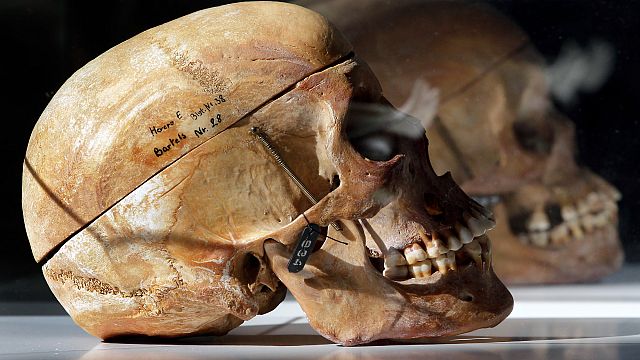In the annals of history, some tragedies are overshadowed by others, relegated to the periphery of collective memory. Such was the fate of the mass killings of the Herero and Nama people in Namibia between 1904 and 1908 – a dark chapter that lingered in the shadows while the world grappled with the horrors of the Holocaust. It was a time when Namibia was under German colonial rule, a period fraught with tension and conflict that would culminate in one of the most brutal acts of genocide witnessed in Africa.
The seeds of the genocide were sown in the simmering resentment between German settlers and the indigenous Herero population. In 1904, this tension erupted into open clashes, prompting German troops to respond with a ruthless escalation. An extermination order was issued, condemning all Hereros to a fate of annihilation. The Nama people, in solidarity with the Herero revolt, were met with the same brutal reprisal, marking the beginning of a systematic campaign of violence and oppression.
Survivors of the mass killings found themselves thrust into the nightmarish reality of concentration camps – places of unspeakable suffering where starvation, forced labor, and medical experiments were the norm. The cruelty inflicted upon the Herero and Nama people knew no bounds, as they endured unimaginable horrors at the hands of their oppressors.
Historians have drawn chilling parallels between the genocide in Namibia and the atrocities of the Holocaust, viewing the former as a grim precursor to the systematic extermination that would later unfold in Europe. The echoes of suffering and injustice reverberate through time, underscoring the enduring impact of colonial brutality on indigenous populations.
In a significant development, Germany finally acknowledged the events in Namibia as a genocide in 2021, a long-overdue recognition of the historical injustices inflicted upon the Herero and Nama communities. As a gesture of reconciliation, Germany proposed a financial package of €1.1 billion to support projects and development initiatives benefiting the affected communities. However, Namibia, seeking more than monetary reparations, rejected the offer, underscoring the importance of an official apology and a comprehensive reparations package as crucial steps towards healing the wounds of the past.
The journey towards justice and reconciliation is fraught with complexities and challenges, as the scars of the past continue to shape the present. The negotiations between Germany and Namibia stand as a testament to the enduring quest for truth and restitution, highlighting the need to confront historical injustices with courage and empathy.
As the world bears witness to the unfolding saga of the Herero and Nama genocide, it serves as a stark reminder of the profound human cost of colonial violence and oppression. It is a story that demands to be told, a narrative of resilience and remembrance that echoes across generations, urging us to confront the shadows of the past with unwavering resolve and a commitment to honor the memory of those who perished in the darkness of genocide.









Leave feedback about this